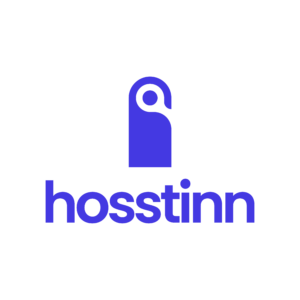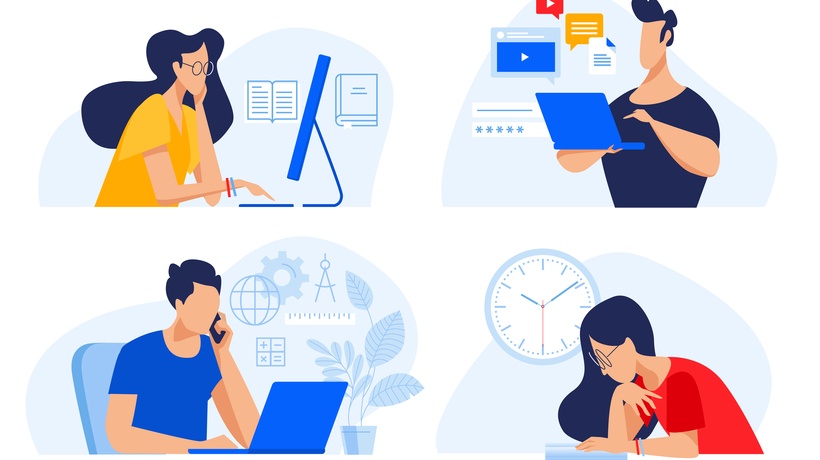Using Microlearning In Hospitality Staff Training
In the competitive world of hospitality, staff training is crucial to ensure high-quality service and customer satisfaction. Traditional methods of training, such as classroom lectures and manuals, can be time-consuming, expensive, and often fail to engage learners. Microlearning, a relatively new approach to training, has emerged as a promising solution for addressing these challenges. Microlearning involves delivering short, bite-sized modules of learning content that can be accessed on demand through various devices. These modules can be interactive, engaging, and easily customizable to cater to individual learning styles and preferences. With microlearning, employees can learn at their own pace and convenience, making the training experience more effective and efficient. The hospitality industry is a perfect fit for microlearning due to its diverse workforce and dynamic environment.
From front-desk staff to kitchen personnel, employees in the hospitality industry require constant upskilling and training to keep up with changing customer preferences and market trends. Microlearning allows organizations to deliver training on specific skills, products, or services, ensuring that employees are well-equipped to handle any situation. In addition to its flexibility and convenience, microlearning can also be cost-effective for hospitality organizations. Traditional training methods can be expensive, particularly for large organizations with a high turnover rate. Microlearning can significantly reduce costs associated with travel, accommodation, and instructor fees, while still delivering high-quality training.
This article will explore the advantages of implementing microlearning in the hospitality industry, from improved employee performance to increased efficiency in staff training software. We will also discuss how microlearning can be used to create more engaging learning experiences for employees and help them develop new skills more quickly.
Benefits Of Microlearning For Hospitality Training
Microlearning is a great way to boost employee training and performance. It can be used in many different industries, but it's especially useful in the hospitality industry because of its unique challenges. Hospitality workers often have to deal with high-stress situations where they need to make quick decisions on the spot. Microlearning allows them to learn at their own pace, which means they won't feel pressured into learning something before they're ready or able to apply it effectively. This makes microlearning ideal for hospitality workers who want more control over their own learning process—and don't want any part of it taking place during their shift! Microlearning provides several benefits that make it an ideal training solution for the hospitality industry. Some of these benefits include:
1. Increased Engagement And Retention
Traditional training methods can be monotonous and may not capture the learners' attention. Microlearning, on the other hand, uses various multimedia elements such as images, videos, and interactive quizzes, making the learning experience engaging and memorable. This approach can help learners retain information better and apply it effectively in their job roles.
2. Cost-Effectiveness
The hospitality industry is known for its high employee turnover rate. Traditional training methods can be expensive, particularly when the same training has to be delivered repeatedly. Microlearning is cost-effective as it eliminates expenses such as travel, accommodation, and instructor fees. Organizations can also update and customize the training content easily, reducing the need for costly reprints and redesigns.
3. Flexibility And Convenience
Hospitality organizations often have employees working in different locations or on different schedules. Microlearning allows learners to access the training modules at their convenience, from anywhere, and on any device. This approach ensures that employees do not miss out on training due to scheduling conflicts or geographical barriers.
4. Customization And Personalization
Microlearning can be customized to cater to individual learning styles and preferences. The training modules can be designed to align with the organization's specific goals and objectives, ensuring that employees receive training that is relevant to their job roles. The ability to personalize the learning experience can also improve learner motivation and engagement.
Overall, microlearning provides a range of benefits that make it an attractive option for hospitality training. However, the success of microlearning in training depends on its effective implementation. In the next section, we will discuss the various applications of microlearning in the hospitality industry.
Applications Of Microlearning In The Hospitality Industry
Hotel owners are unable to find the people they need to handle the strong demand at the moment. The answer should be to strengthen attraction and retention strategies by offering digital training programs to workers. With such a high number of unfilled positions, the competitiveness between companies grows. Candidates have multiple options to choose from and, in order not to lose the battle, it is necessary to improve the offer.
Although salary and work environment continue to be important factors in attracting and retaining talent, they are not the only ones. According to LinkedIn’s Workplace Learning Report, 94% of employees surveyed said they would stay at a job longer if they were offered pathways for career development. This is where digital training and, specifically, microlearning applications come into play. Digital microlearning stands out when organizations seek to find, engage and retain talent. Also, in the case of the hospitality industry, opting for an easy-to-use online solution like this increases the attractiveness of the job, improves the process of incorporating new employees, and keeps the current workforce motivated.
Types Of Training
In a field in which workloads are heavy and workers do not always have spaces set up to study, digital microlearning, with its short formats—about 15 minutes—that can be viewed anywhere through a device mobile, make it easier to fit into the daily routines of each person. Furthermore, the topics available are usually entertaining, with a simple design that includes elements such as gamification, which favors the retention of information. And no less important, digitally delivered knowledge allows a constant update of the contents, as well as a perfect adjustment to the needs and background of each employee.
In this way, companies can offer more relevant courses and maximize the Return On Investment. In the end, they are focusing the learning on those points that each individual needs to improve and on the needs of the business, which can change from one moment to another. Microlearning can be used to deliver various types of training in the hospitality industry, such as:
1. Product And Service Training
Microlearning can be used to train employees on specific products and services offered by the organization. This type of training can ensure that employees have up-to-date knowledge of the products and services, enabling them to provide better customer service.
2. Compliance And Safety Training
Compliance and safety training are critical in the hospitality industry. Microlearning can be used to deliver compliance and safety training modules, ensuring that employees understand the organization's policies and procedures.
3. Soft Skills Development
Soft skills such as communication, teamwork, and problem-solving are essential in the hospitality industry. Microlearning can be used to deliver soft skills training, allowing employees to improve their interpersonal and communication skills.
4. Onboarding And Orientation
Microlearning can be used to deliver onboarding and orientation training to new employees, enabling them to understand the organization's culture, values, and work processes.
Tips To Maximize The Effectiveness Of Your Microlearning Programs
While microlearning can be a highly effective training solution for the hospitality industry, its successful implementation requires careful planning and execution. Here are some best practices for implementing microlearning in hospitality training:
1. Define Clear Learning Objectives
Before developing microlearning modules, it is essential to define clear learning objectives. This will help ensure that the training content is relevant and aligned with the organization's goals and objectives.
2. Create Engaging Content
To ensure employee engagement and retention, it is important to create engaging and interactive microlearning content. This can be achieved by incorporating multimedia elements such as videos, images, and quizzes into the modules.
3. Provide Access To The Modules
Microlearning modules should be easily accessible to employees on various devices, such as smartphones, tablets, and laptops. This will enable employees to access the training content at their convenience, regardless of their location.
4. Ensure Content Is Relevant
The microlearning modules should be relevant to the employees' job roles and should address the specific skills or knowledge gaps they need to fill. Customization and personalization of the training content can help achieve this.
5. Encourage Learner Feedback
Regular feedback from employees can help organizations understand the effectiveness of their microlearning training programs. This feedback can be used to make improvements and modifications to the modules to better suit the employees' needs.
6. Provide Ongoing Support
Ongoing support should be provided to employees throughout the training process. This can be in the form of access to Subject Matter Experts or additional resources to supplement the microlearning modules.
7. Measure The Effectiveness Of the Training
It is important to measure the effectiveness of the microlearning training program to determine its impact on employee performance and customer satisfaction. This can be done by collecting data on Key Performance Indicators (KPIs) such as employee turnover rates, customer feedback, and employee engagement.
Ultimately, incorporating microlearning into hospitality training calls for careful preparation and execution. Organizations can successfully implement microlearning to boost worker productivity and customer satisfaction by defining clear learning objectives, developing engaging content, providing access to modules, checking that the content is relevant, encouraging learner feedback, offering ongoing support, and measuring the effectiveness of the training.
Success Stories Of Microlearning In Hospitality Training
Several hospitality organizations have already experienced success with microlearning in their staff training programs. One example is Hilton Worldwide, which launched a microlearning program called Hilton Worldwide University (HWU) to train its employees. The program features bite-sized modules that are tailored to specific job roles and departments, enabling employees to learn at their own pace and on their own time. HWU has been successful in improving employee engagement, retention, and performance, and has been recognized with several industry awards.
Another success story comes from InterContinental Hotels Group (IHG), which launched its own microlearning program called IHG Mylearning, previously known as IHG Frontline. The program provides employees with quick, on-demand access to training materials that cover a range of topics, including customer service, operations, and sales. Since its launch, IHG Mylearning has been successful in improving employee engagement and knowledge retention and has helped increase guest satisfaction scores.
These success stories demonstrate the effectiveness of microlearning in hospitality staff training and highlight the benefits it can bring to both employees and organizations. By adopting a microlearning approach and utilizing the right tools and strategies, hospitality organizations can achieve their training goals and provide exceptional guest experiences.
Conclusion
The hospitality industry is highly competitive, and providing exceptional guest experiences is key to success. The use of microlearning in hospitality staff training can play a critical role in improving employee performance and ultimately enhancing guest satisfaction. By utilizing microlearning, hospitality organizations can efficiently train their staff, fill skill and knowledge gaps, and ensure their employees are equipped with the skills needed to provide excellent service. While implementing microlearning in hospitality training requires careful planning and execution, there are many tools available to help organizations create and deliver effective microlearning modules.
In conclusion, the use of microlearning in hospitality training is a smart investment that can pay significant dividends. By adopting a microlearning approach and utilizing the right tools and best practices, hospitality organizations can equip their staff with the skills and knowledge they need to deliver exceptional guest experiences and stay ahead of the competition.










